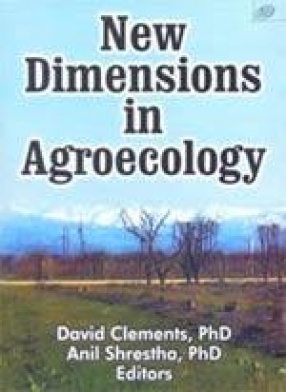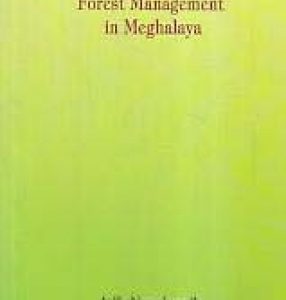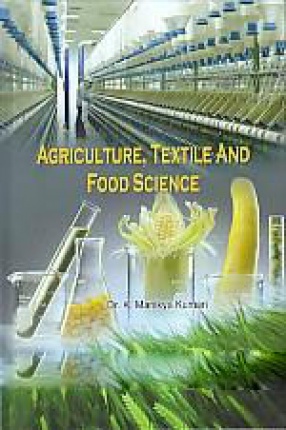The term “agroecology†was proposed in the 1930s and has been in use of quite sometime. It became a discipline in its own right in the 1980s. Of course, the roots of an ecological approach to agriculture go back to the dawn of the agricultural revolution, when early farmers could contend with the elements only by understanding the ecological forces that could be wielded to design an agroecosystem. Recently, as traditional agronomic approaches have faced various economic and societal pressures, agroecology has been seen as a serious alternative and is now being introduced as a course of even a department at numerous colleges and universities. The idea of this book is to aid this process by incorporating contributors from researchers who have been working in agroecology for some time with that of other people making headway in the area (some of whom may not even consider themselves as “Agroecolosistsâ€). The overall theme being developed is that ecological approaches offer numerous new dimensions to help meet the challenges of agriculture (or “the problem of agriculture†as Wes Jackson likes to put it.) Agroecology strives to bridge two fields, agronomy and ecology, and thus to bring holism to agriculture. This stretching of perspective is evident throughout this book, be it stretching from the field level to the landscape level, or from the level of bioengineering a gene to incorporating that gene within a complex ecological system –the agroecosystem.
New Dimensions in Agroecology
$60.30
$67.00
In stock
Free & Quick Delivery Worldwide
All orders amounting to US$ 50 or more qualify for Free Delivery Worldwide. For orders less than US$ 50, we offer Standard Delivery at $14 per book.
ABOUT THE AUTHOR Anil Shrestha
Anil Shrestha, PhD, is Weed ecologist with the university of California’s Statewide IPM Program. He is based at the university’s Kearney Agricultural Centre in Parlier. After completing his undergraduate degree at the Narendra Dev University of Agriculture and technology in Faizabad, India, he worked several years with the Department of Agriculture and with the FAO Fertilizer program in his homeland of Nepal. Dr. Shrestha is committed to the extension and research efforts in vegetation management, integrated pest management, cropping systems, and agroecology. He has authored more than 25 refereed papers and several extension articles in the field and has recently edited a book entitled Cropping Systems: Trends and Advances.
ABOUT THE AUTHOR David R. Clements
David R. Clements, PHD, is Associate Professor of Biology and Environmental Studies at trinity Western university in Langley,. British Columbia. Dr. Clements completed his PhD in Kingston, Ontario, Integrated pest management in apple orchards. During his post-doctorate research at the university of Guelph, he continued to apply ecological principles to pest management, working in the area of weed management of row crops. He has taught ecology and botany courses at Trinity Western University since 1994, including field courses in plant ecology in the Gulf Islands off the coast of British Columbia and in the Hawaiian islands. He continues to research various aspects of integrated weed management in agriculture as well as study invasive weed biology in natural ecosystems. Dr. Clements has published accounts for seven species in the Biology of Canadian Weed series of the Canadian Journal of Plant Science (CJPS) and was also recently named an Associate Editor of the CJPS, with responsibility for the Biology of Canadian Weed series. He has published more than 25 refereed articles. Dr. Clements is a member of several organizations, including the Canadian, the Soil and Water Conservation Society, and the Langley Environment Partners Society.
reviews
0 in total
Review by Anonymous
Be the first to review “New Dimensions in Agroecology” Cancel reply
You must be logged in to post a review.
Bibliographic information
Title
New Dimensions in Agroecology
Author
Edition
Reprint
Publisher
ISBN
8181891058
Length
xiv+553p., Tables; Figures; References; Index; 23cm.
Subjects





There are no reviews yet.